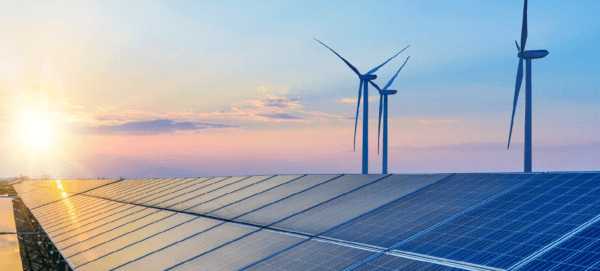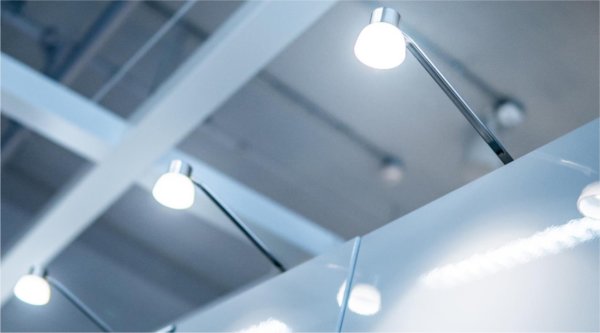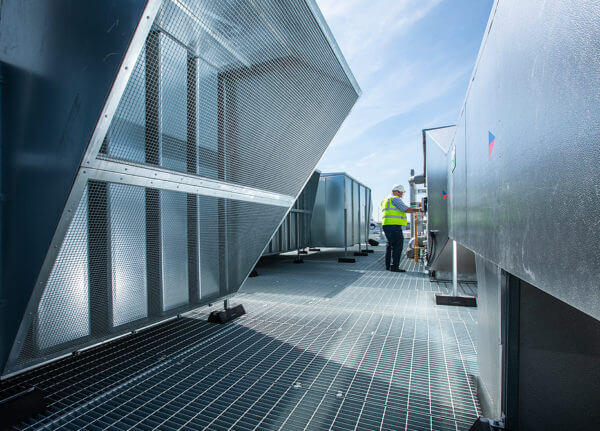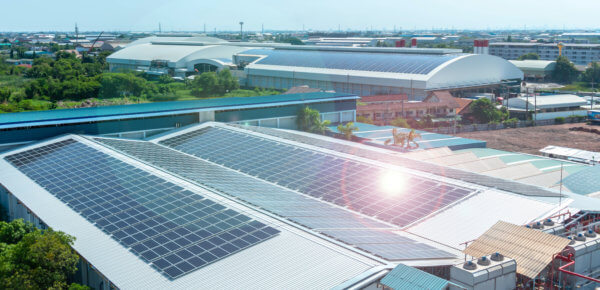6 ways to reduce your organisation’s carbon footprint
With over half of the UK’s largest organisations committed to eliminating their carbon emissions by 2050*, there’s growing momentum to reduce our collective carbon footprint. The climate crisis, and the recognised impact of global warming, have moved sustainability and the environment to the top of the agenda. Most organisations are going to great lengths to reduce their carbon emissions and the UK has become a leader in decarbonisation and sustainable practices.
*source: Department for Business, Energy and Industrial Strategy
So, what is decarbonisation and why is it important?
Our modern society produces a lot of carbon dioxide (CO2): much more than is produced naturally. Scientific research confirms that it’s this excess CO2 which is unbalancing atmospheric levels and causing increases in global temperatures. Scientists have been warning us for decades and now we must act to reduce carbon emissions as a matter of urgency.
Decarbonisation is the term used for the removal or reduction of CO2 released into the atmosphere. Carbon emissions, which have already been released, can be balanced out by capturing the same amount of CO2 from the atmosphere and storing it in a ‘carbon pool’. This process is known as ‘carbon sequestration’.

The complete removal of carbon emissions is known as ‘carbon neutrality’ or ‘net zero’. This hard-to-achieve status needs careful planning and research to inform the right strategy for any organisation. It has an impact on decisions covering everything from how you manage your facilities, your materials and processes, to logistics and transportation, and which suppliers you work with.
There are things organisations can do to reduce CO2 emissions produced by daily operations. Read on for some pointers on the ways your organisation can reduce its carbon footprint.
6 ways to reduce your organisation’s carbon emissions
Reduce waste in heating systems
The first thing to do is to make the most of what you have. Make sure that building controls and heating systems are properly maintained and fine-tuned to run at peak performance.
Older heating systems are especially inefficient, often needing an upgrade or replacement. If that’s not possible, there are other ways to optimise heating systems and reduce energy wastage.
Space usage and occupation can be monitored using sensors linked to the building management system (BMS). This allows facilities managers to turn down or switch off heating when not in use. Similarly, window and door sensors can trigger an alarm in a specified scenario. For example, if the heating is on and the window or door is left open, a BMS alarm can indicate where heat is escaping from in the building so that action can be taken.
Use energy-efficient lighting
Lighting accounts for around 30% of an organisation’s electricity usage and traditional lightbulbs use around five times more energy than more energy-efficient LEDs.
Switching to LED lighting not only cuts energy usage, and costs, but also lowers your CO2 emissions. And, by remotely monitoring building occupancy and controlling the lights in areas that are not in constant use, smart sensors can contribute to energy savings and carbon reduction.

Switch to solar
Sources of renewable energy, including wind power, solar, hydropower, geothermal and biopower, are becoming more widely available, accessible and, in some cases, more affordable.
There’s a growing demand for renewable energy solutions. Solar photovoltaics (PVs) is one of the most advanced renewable technologies for built environments. According to Solar Energy UK, in the UK alone, solar power generation is at just over 14GW. It will need to reach at least 40GW by 2030, if we are to achieve a net zero economy by 2050.
The falling costs in solar PVs, and the increase in performance, should go a long way to helping us to achieve our goals, And, at Mitie, our solar specialists help organisations to find the right energy solutions by providing a complete service, from design and delivery to monitoring and maintenance.
Convert to electric vehicles
There are millions of cars on the roads globally. Unfortunately for the climate, the internal combustion engine is one of the biggest single contributors to global warming. According to an International Energy Agency report on global CO2 emissions produced by the transport sector, 39% come from passenger cars and a further 23% from medium and heavy goods vehicles.
Electric vehicle (EV) technology has advanced hugely over the last decade, and EVs are now a realistic and viable alternative to traditional petrol and diesel engines.
Mitie’s team of transportation consultants, combined with our in-house ability to provide high-voltage services, are helping customers transition to EV and significant carbon emissions. Our teams will first analyse the vehicle fleet and ESG goals, then work closely with you to design, build and install the EV charging infrastructure you will need.
At Mitie, we practice what we preach. As part of our own net zero strategy, we’ve so far converted over 45% of our vehicle fleet to zero emission EVs. With more than 3000 EVs on the road we have one of the largest EV fleets in the UK*, generating annual savings of around 10,000 tonnes of CO2 each year.
* As at the end of December 2022
Decarbonise your heating system
The energy used to heat commercial buildings can have a huge impact on the carbon footprint of an organisation.
Heating systems are generally a good place to start on the road to decarbonisation for most organisations. Changing to low carbon alternatives, like heat pumps, is a good way to improve energy consumption and it helps with decarbonising your organisation’s estate.
At Mitie, our energy team works closely with clients to take fossil fuels out of the equation and decarbonise their heating by switching from gas boilers to better heating and cooling solutions.

Use sustainable suppliers
When it comes to reducing your organisation’s carbon footprint, the choices made by your suppliers matter just as much as your own activities in your decarbonisation journey. This is referred to as Scope 3 emissions. Choose to work with suppliers with an environmentally responsible approach and make it your business to drive carbon reduction in your supply chain.
At Mitie, we have ambitious plans to reach net zero carbon emissions by 2025, for our operational emissions (Scope 1 and 2). By 2035, we aim to reach net zero for Scope 3 emissions, which covers things that are more difficult to control, like our supply chain and the employee commute. We’re well on our way to reaching our targets. We’re also on a mission to help our customers, and the wider industry, accelerate on their path to net zero.
How can Mitie help your organisation reduce its carbon footprint?
Carbon reduction is a complex process and there’s no standard solution to decarbonising your organisation. Getting expert advice on the best measures can pay real dividends in terms of fast results and returns on investment.
As one of the UK’s largest facilities management companies, with an in-house team of energy consultants, Mitie offers solid expertise in this rapidly changing sector. We’re recognised as an appointed supplier on frameworks including the Net Zero Carbon Delivery Framework.
Our teams are specialists in renewable energy, waste resources, sustainable transport and infrastructure. There is a science to the decarbonisation process, and we combine innovation with the intelligent use of data to deliver positive impacts for our customers.
By challenging our customers, setting ambitious targets and developing practical energy strategies, we help them get to decarbonisation faster.
Enquire now to see how Mitie can support your organisation on the path to net zero.
Read next

Build a decarbonisation business case that speaks volumes
Building a credible business case for decarbonisation matters – but how do you articulate it to senior decision makers? Plan Zero Director, Mike Sewell, explains. There’s no way around it – decarbonisation must become…
Mitie releases e-book to tackle biggest challenges to reach net zero
Mitie’s latest e-book, released today, tackles the five biggest challenges to reaching net zero, and shares insights on how organisations can overcome each one. As the UK’s leading facilities management company, Mitie’s energy management,…
Mitie’s net zero experts share decarbonisation predictions for 2023
Mitie, the UK’s leading facilities management company, has today published its latest decarbonisation insights paper: Net Zero Navigator 2023. Throughout the paper, Mitie’s decarbonisation experts share their predictions for the year ahead, covering a…